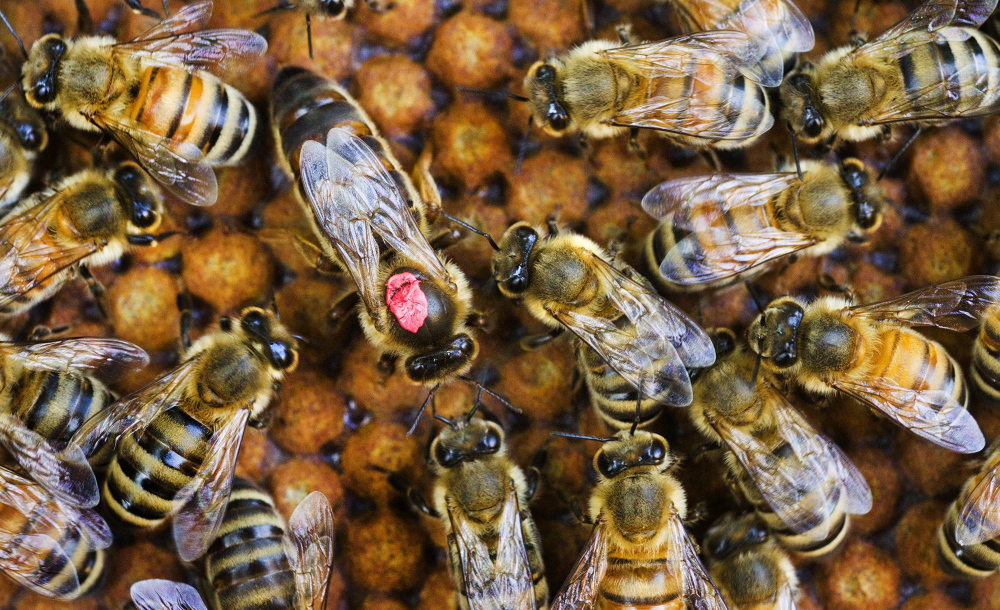Many home-garden plants, promoted as “bee-friendly,” are pretreated with a class of pesticides shown to harm and kill bees and other pollinating insects, according to several consumer groups that will release pesticide test results Wednesday at a press conference in Portland.
The Organic Consumers Association, Friends of the Earth, in conjunction with more than 20 beekeeping and organic gardening associations, including Maine Organic Farmers and Gardeners Association, will present the results of the study – said to be based on the largest data samples to date – at The Honey Exchange on Stevens Avenue. In addition, the organization will present homeowners and backyard gardeners with tips on how to reduce exposure to the pesticides – known as neonicotinoids – and to protect bees.
Neonicotinoids work by affecting the central nervous system of insects, causing paralysis and death, according to the U.S. Environmental Protection Agency.
They are systemic pesticides, meaning that they affect not just the surface of leaves of treated plants but also are absorbed through the entire system, penetrating even into the soil, said Erin Forbes, a master beekeeper from Portland. They are also persistent, lasting up to 15 years in soil, she said.
These pesticides have come under scrutiny in recent years due to the decline of honeybees, particularly from colony collapse disorder. Entomologists and biologists have been working to unravel the multiple factors involved in the disorder, which have decimated bee populations worldwide.
“Neonicotinoids “are absolutely a contributing factor to the increased decline of honeybee colonies in recent years,” said Forbes. Most plants that are started in soil and transported from one state to another have neonicotinoids in the soil, she said.
Dozens of environmental and agricultural organization nationally and internationally are calling for action to address problems of neonicotinoids.
Last Friday, the White House issued a statement calling the decline of honeybees, native bees and other pollinators – including birds, bats and butterflies – a serious problem that “poses a significant challenge that needs to be addressed to ensure the sustainability of our food production systems, avoid additional economic impacts on the agricultural sector and protect the health of the environment.”
President Obama called for several measures, including the establishment of a task force charged with developing a national strategy to improve pollinator health.
The White House stopped short of singling out neonicotinoid pesticides but included “pesticide exposure” as one of several factors in bee decline.
Pollinators contribute more than $24 billion to the U.S. economy annually – with honeybees accounting for more than $15 billion, according to the White House statement.
“Honeybees enable the production of at least 90 percent of commercially grown crops in North America,” the statement said. Globally, animal pollinators enable the production of 87 of the leading 115 food crops, the White House estimated.
Send questions/comments to the editors.


